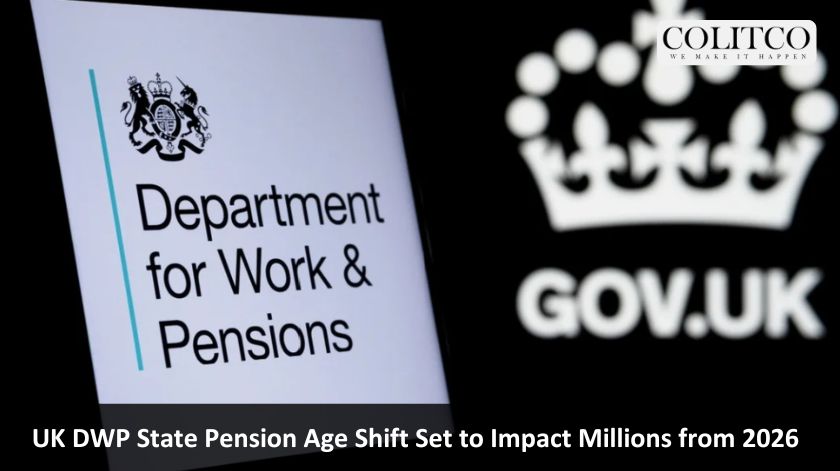Phased Change to Begin Next Year
The Department for Work and Pensions (DWP) has confirmed that the State Pension age will rise from 66 to 67. The phased implementation begins in 2026 and concludes by 2028. The increase affects individuals born after 6 April 1960.
Currently, both men and women can access their State Pension at age 66. The new schedule delays access for those born between April 1960 and March 1961. They will become eligible at 66 years and a specified number of months, depending on their exact birthdate.
Eligibility Adjustments Explained
The DWP outlined specific timeframes for eligibility under the new system. Individuals born between 6 April 1960 and 5 May 1960 will receive their pension at 66 years and 1 month. Those born between 6 May and 5 June 1960 will receive it at 66 years and 2 months.
The pattern continues monthly until individuals born between 6 February 1961 and 5 March 1961 receive their pension at 66 years and 11 months. Anyone born between 6 March 1961 and 5 April 1977 will be eligible at 67.
Transition Period to Affect Timing
This change means those born in the transition period will receive their pension later than their 66th birthday. Some will be closer to 66 when payments begin, while others will approach 67.
The DWP confirmed that the rise stems from the Pensions Act 2014. The Act advanced the planned age increase by eight years. The new schedule replaces the previous rule where State Pension age was linked to specific dates.
Legislative Context and Long-Term Planning
According to the DWP, “The Pensions Act 2014 brought the increase in the State Pension age from 66 to 67 forward by 8 years. The State Pension age for men and women will now increase to 67 between 2026 and 2028.”
The statement continues, “The government also changed the way in which the increase in State Pension age is phased so that rather than reaching State Pension age on a specific date, people born between 6 April 1960 and 5 March 1961 will reach their State Pension age at 66 years and the specified number of months.”
For those born between 6 April 1969 and 5 April 1977, the age has already been set at 67 under the Pensions Act 2007.
Future Adjustments Under Review
While the 66 to 67 increase remains fixed, future changes are under evaluation. The government has already scheduled a second increase from 67 to 68. That adjustment will occur between 2044 and 2046 unless amended.
The DWP noted that the government considers “a range of factors” in determining age eligibility. These include life expectancy and demographic data. Any changes must pass through Parliament before implementation.
Impact on Citizens Born Post-1960
This adjustment delays when citizens born after April 1960 can access State Pension benefits. They must now wait longer, sometimes nearly a year past their 66th birthday.
Despite the delay, the DWP reaffirmed that the policy change aims to maintain sustainability. It reflects increasing life expectancy and pressures on public finances. The phased system allows smoother transitions for those affected.
Age Schedule Breakdown from 2026–2028
- Born 6 April – 5 May 1960: 66 years and 1 month
- Born 6 May – 5 June 1960: 66 years and 2 months
- Born 6 June – 5 July 1960: 66 years and 3 months
- Born 6 July – 5 August 1960: 66 years and 4 months
- Born 6 August – 5 September 1960: 66 years and 5 months
- Born 6 September – 5 October 1960: 66 years and 6 months
- Born 6 October – 5 November 1960: 66 years and 7 months
- Born 6 November – 5 December 1960: 66 years and 8 months
- Born 6 December 1960 – 5 January 1961: 66 years and 9 months
- Born 6 January – 5 February 1961: 66 years and 10 months
- Born 6 February – 5 March 1961: 66 years and 11 months
- Born 6 March 1961 – 5 April 1977: Age 67
Also Read: Volcanic Eruption Grounds Bali Flights as Mount Lewotobi Unleashes Ash and Chaos Across Skies
State Pension Age to Reach 68 in Future
For younger generations, a further rise is expected. The DWP stated that the pension age will reach 68 between 2044 and 2046.
Anyone born after 5 April 1977 will eventually be eligible for their pension at age 67. However, those born later could face an age threshold of 68, depending on future policy reviews.
The current age structure remains subject to periodic review. Authorities can revise timelines based on economic and health data.
Conclusion
The DWP’s confirmation of a phased rise in State Pension age marks a major policy shift. The changes will gradually impact millions born after April 1960. These citizens must now plan for delayed access to pension entitlements.












